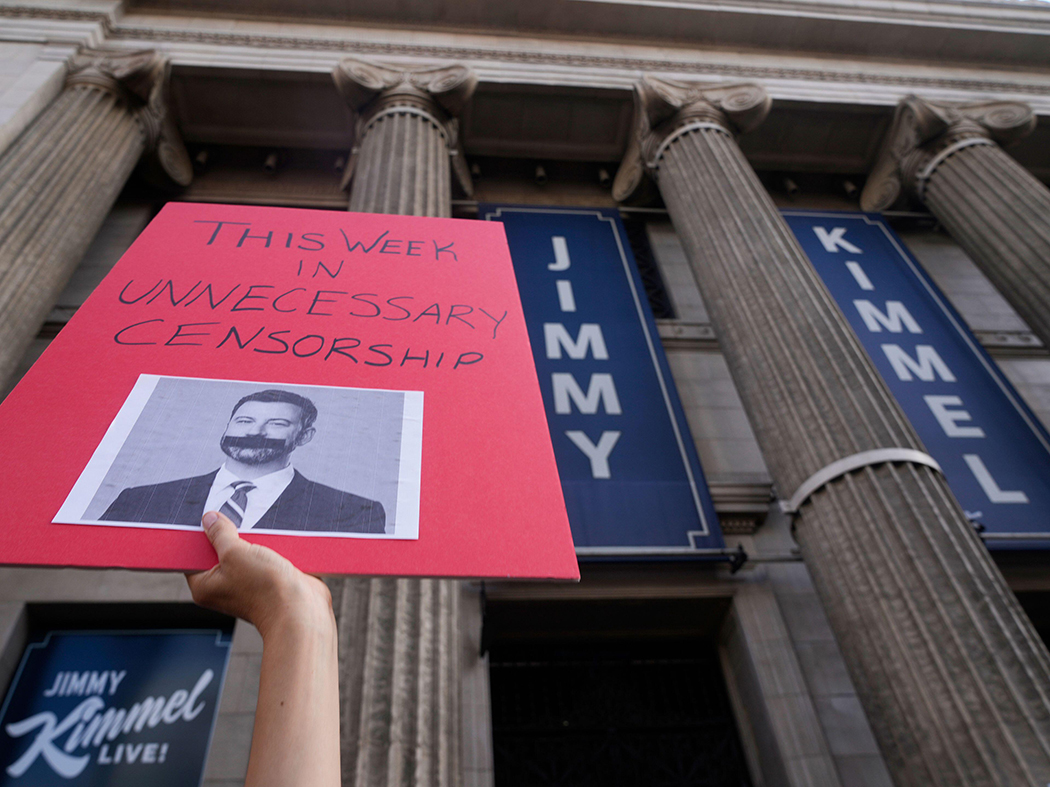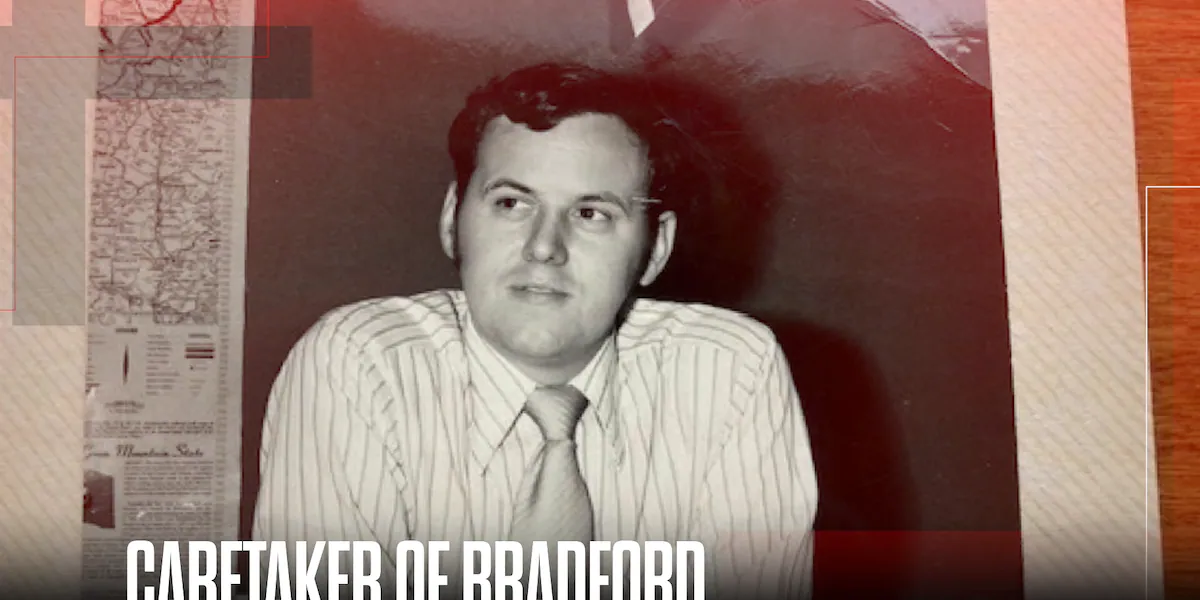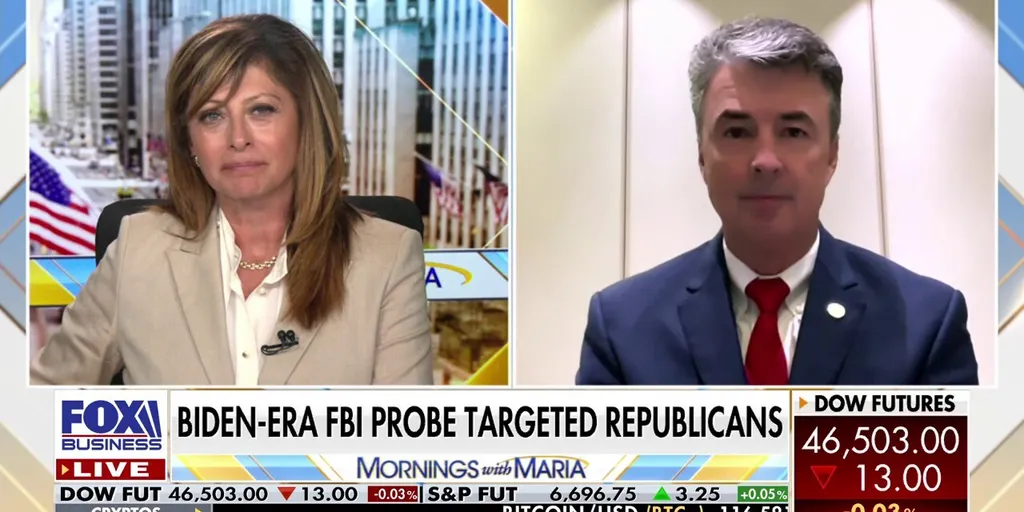By Katie Stallard
Copyright newstatesman

Jimmy Kimmel’s remarks on his late-night talk show on 15 September were in poor taste, ignorant of the facts and decidedly unfunny. These are not acceptable reasons for the US government to force a comedian off the air.
The context and the details here are critical, so it is worth revisiting what Kimmel actually said. With Tyler Robinson in custody – that is, the man suspected of assassinating right-wing activist Charlie Kirk on a university campus on 10 September – Kimmel decided to address the incident in his opening monologue. “We hit some new lows over the weekend, with the Maga gang desperately trying to characterise this kid who murdered Charlie Kirk as anything other than one of them, and doing everything they can to score political points from it,” Kimmel said.
He then played a clip of Donald Trump answering a question from a reporter about how he was holding up after the death of his friend by saying that he was “very good”, and then gesturing to the construction vehicles working on the new ballroom he is building at the White House. “Yes, he’s at the fourth stage of grief: construction,” Kimmel quipped. The studio audience laughed.
It is never a good idea to try to turn a gruesome murder into a punchline. Even less so in the days immediately following that killing, when the victim has yet to be buried and his devastated family and friends are still grieving their loss. Kimmel ignored – intentionally or not – the information that was already emerging about the suspect’s ideological views and the motives he might have had for targeting Kirk. In normal times, he might have been expected to put out a statement on social media, or apologise at the start of his next show, acknowledging that his comments were ill-informed and making clear that he was sorry for any distress they had caused.
But these are not normal times.
On Wednesday 17 September, the chair of the Federal Communications Commission (FCC), Brendan Carr (who was appointed by Trump and has been photographed wearing a gold Trump lapel pin) appeared on a conservative podcast and openly threatened Disney, which owns ABC, the network that broadcast Kimmel’s show. “We can do this the easy way or the hard way,” Carr said on the Benny Johnson podcast. “These companies can find ways to take action on Kimmel or there is going to be additional work for the FCC here.”
Pressed as to what form that action might take, Carr noted that there were “calls for Kimmel to be fired,” and that Disney has “a license granted by us at the FCC, and that comes with an obligation to operate in the public interest.” The inference was not subtle.
Nexstar Media Group, which operates numerous ABC local affiliate stations across the US – and is currently in talks for a merger with a rival company that would require FCC approval – swiftly pronounced Kimmel’s comments “offensive and insensitive” and said that it would not air his show for the “foreseeable future”. That evening, ABC announced that it was “indefinitely” suspending Jimmy Kimmel Live. Trump triumphantly declared that Kimmel’s show had been “CANCELLED” in a late-night social media post from Windsor Castle, where he was staying during his state visit to the UK. “Great News for America,” the US president wrote. “Congratulations to ABC for finally having the courage to do what had to be done.” He then suggested that Jimmy Fallon and Seth Meyers, who host high-profile shows on NBC should be next. “Do it NBC!!!” Trump urged. He signed his Truth Social post, “President DJT.”
Trump has been demanding Kimmel’s head for some time. In July, when CBS announced plans to cancel Stephen Colbert’s The Late Show after 33 years on air, the president called for Kimmel to be “next”. The network said the decision to axe Colbert – his last show will take place in May 2026 – was taken solely for financial reasons; a week later the FCC approved an $8bn merger between CBS’s parent company, Paramount and Skydance Media. Both Colbert and Kimmel have repeatedly poked fun at Trump, as is their constitutionally-protected right in a country that supposedly guarantees freedom of speech.
Trump is not the first aspiring autocrat to lack a sense of humour at his own expense. When Vladimir Putin was elected president of Russia in 2000, one of the first television programmes to disappear was the satirical puppet show Kukly, which featured an unflattering puppet of the new leader, mocking his diminutive stature and lack of political experience. By the end of his first year in power, all three of Russia’s major television networks were either under direct state control or in the hands of Putin’s allies.
The United States is not Russia, which was only just emerging from the long decades of communist rule and had yet to fully transition to democracy when Putin ascended to power at the turn of the millennium and set about consolidating control. But neither should we comfort ourselves that the descent into authoritarianism is some obscure, foreign affliction that can’t happen here; it is already happening.
The Trump administration has proclaimed Charlie Kirk a martyr, holding him up as an unimpeachable proxy behind which they fully intend to advance. If you fail to afford him the required reverence, you can expect the full force of this government to come after you and your employer. Kimmel is not the first to be silenced – and he will not be the last.
Modern authoritarianism is not all jackboots in the streets – although the masked men and the military presence in American cities are already here. The more pernicious danger is the gradual chilling of speech and free expression; the demands for obedience and compliance; the shrinking space for public criticism and political opposition; the illusion that if only you keep your head down and don’t attract the ire of those in power, then you, and your family, and your business interests, will be left alone. We can convince ourselves that we shouldn’t pay too much attention to what happens to Jimmy Kimmel – a multimillionaire celebrity who said something on television that he shouldn’t have – but that would be to miss the trajectory the US is now on.
As an aspiring comedy writer protesting outside the Jimmy Kimmel studio on 17 September told the New York Times, “I think it is important to speak up now because if people don’t speak up now, it will be harder to speak up later.”
Perry Link, a renowned American scholar of China, wrote a famous essay in 2002 about censorship – and self-censorship – which compared the Chinese government’s approach to a “giant anaconda coiled in an overhead chandelier.” Most of the time the terrifying snake doesn’t move, he explained: “It doesn’t have to… its constant silent message is, ‘You yourself decide,’ after which, more often than not, everyone in its shadow makes his or her large and small adjustments – all quite ‘naturally’.” The Trumpian equivalent is now making its presence felt, and we are all now living in its shadow.



